
Roch Longueépée - Founder & CEO, Restoring Dignity (Formerly Internations' Justice Federation)
Public address on Child abuse in institutions
Ottawa Marriott, Otawa, Ontario Canada
Friday, September 10, 2004
Download audio here: http://restoringdignity.org/systems.mp3
Public address on Child abuse in institutions
Ottawa Marriott, Otawa, Ontario Canada
Friday, September 10, 2004
Download audio here: http://restoringdignity.org/systems.mp3
Distinguished Guests, members of Reach Canada, Ladies and Gentlemen. I want to express my gratitude to each of you for joining me today. My name is Roch Longueépée, Founder and President of Internations' Justice Federation based in Halifax , Nova Scotia , Canada . The organization, currently being developed, advocates change in the standards of restitution respecting institutional child abuse and in the child protection standards involving current and future generations of children.
My passion for this work is deeply rooted in my own personal experience. Though I am an advocate for change on this issue, I am also a survivor.
I am not alone. I am one of the many survivors worldwide. We are the victims of childhood exploitation and abuse. We are the former street children. We are the former children of war. We are orphans and victims of institutional child abuse. Our childhoods have been taken from us by those entrusted to protect and care for us. In the wake of that abuse, came poverty, homelessness, corruption, cultural eradication, mutilations, genocide and death. These institutions have built their future on our misfortunes.
While the mental health and deafness issue is necessarily and properly the chief topic here this week, I want to emphasize from the outset that I believe that we have far more critical issues, which now face us. As an advocate on the issue of institutional child abuse, I work with a wide range of groups and cultures. Among them is the deaf culture. The issue of institutional child abuse involves, in all respects, marginalized groups and individuals. I want to first tell you today that I am not deaf. Nor am I versed on the issues of deaf culture. It is, however, my hope that I will help each of you to understand how the cause I represent affects the community of which you are a part.
It is in this context that I wish to address you today. I speak to you not as a victim of institutional child abuse but as a survivor who is trying to move past these experiences.
It is only fitting today that I begin with a story of one of the most notorious cases involving the deaf community. It was 1991, when a scandal of child abuse at British Columbia 's Jericho Hill School for the deaf and blind made headlines across Canada . Jericho Hill School , a residential school, based in Vancouver , British Columbia , Canada , would become the first case of intuitional child abuse involving deaf children and one of Canada 's most infamous.
Over the first few years of its operation, Jericho Hill School was rumored to be one of the best residential schools in the world for deaf children.
Jericho Hill School : its mission was to provide the best education to deaf and blind children anywhere. Over the decades of its operation it would see children from all over North America . Sadly, those who constructed the physical structure did not see the isolation the children of Jericho would face, the isolation of deafness. For many deaf children leaving their families and familiar surroundings, their new home would only add to that isolation.
Behind the walls of Jericho lay a dark secret history of physical and sexual abuse the sexual abuse of young children ignored by the government ministries until the abused would become abusers and the abuse that would infect students at Jericho for decades. Victims would go on to abuse other children until the abuse became a right of passage and thus became normal. The inaction of governments responsible for the school would once again see new horrors surface in newer realities. Outside the walls of Jericho , former students would go on to offend as adults. The cycles of abuse would find its way into victims' family homes and communities. While living in a group home, one former male resident stabbed and killed another over sex. The waves of pain would continue for new students at Jericho , their families and communities. By the time the cycles of abuse had reached the communities at large, rape charges against former Jericho Hill Students would bring police investigations back to Jericho Hill School . Police investigators would find incidents of abuse at Jericho as far back as 1945.
Fintan O'Toole, an Irish reporter for the Irish times, said it best when he wrote;
"The state to put it crudely had been remarkably good at taking vulnerable, neglected and abused children and turning them into drug addicts, prostitutes, and criminals."
Society, sadly, has a tendency to label those victims who became abusers as ‘evil'. I do not believe in evil, at least not in the conventional sense of the word. If there is any evil here, it is the omissions and commissions of government and organizations responsible for these horrors. In a recent landmark case involving the Roman Catholic Church clergy sexual abuse scandal, Ontario Superior Court Justice John Kerr summed this issue up best. In this particular case, the diocese attempted to counter sue a victim who had abused his younger brothers. The diocese claimed the victim turned abuser was partly responsible for the suffering of his siblings when he sexually abused them, but Kerr said he found no merit in that argument. He said "Blaming John for his assaults would be similar to blaming Frankenstein's monster for his actions, rather than attributing its behavior to the scientist who created it."
The deaf community is not the only group identified in these abuse scandals. Matters of institutional child abuse also affect other groups in this country and around the world. Yet when we think of this term we often think of institutions like Jericho Hill School for the deaf and blind. However, the meaning of institutional child abuse does not simply refer to ‘residential schools'.
Child abuse itself is nothing new in society. In fact, research shows issues of child abuse as far back as 2000 BC. The word abuse in and of itself refers to a point of measure. Abuse can be seen as anything, which is in excess and/or causes harm as a result of that excess. Even well known poets wrote of the disgraceful societal value placed on children. William Blake once wrote in his work piece entitled “ Jerusalem ”: ” And did the Countenance Divine
Shine forth upon our clouded hills? /And was Jerusalem builded here / Among these dark satanic mills?”
What Blake is referring to here is the child labor in industrialized pulp mills during his times. Dictionaries define the word ‘institution' as “ That which institutes or instructs; a textbook; a system of elements or rules; an institute.
An established or organized society or corporation; an establishment, especially of a public character, or affecting a community; a foundation; as, a literary institution; a charitable institution; also, a building or the buildings occupied or used by such organization.” When referring to an institution, we should also think of any government, religious, secular, or charitable body charged with the care of children. The meaning of the term has been misinterpreted for many years for takes on a more literal meaning as society begins to grapple with the impacts of institutional child abuse.
In March 2000, the Law Commission of Canada produced a Report to Parliament entitled “Restoring Dignity: Responding to Child Abuse in Canadian Institutions”. The Report provides recommendations for redressing child abuse in Canadian Institutions. This report, while good, is not thorough. Little research has been conducted on institutional child abuse, in part, due to the lack of an accurate definition.
From a proper context of definition comes a history, which spans over four centuries. It marked a time of the British Empire , a time when marginalized groups like children were defined as ‘the lower social orders'. During the late 1600's, Christian charities, governments, and groups sought out a means of ‘seeding the empire' of the ‘undesirables'. Among the schemes introduced were the child migration schemes involving the dominion countries under the rule of the British Empire . Australia 's Alan Gill, author of "Orphans of the Empire, writes:
"Child Migration was devised as offering underprivileged children a 'new start' in a fresh country. It was also a way for Britain to solve its social problems. It was a means of 'seeding the empire', and was pursued with missionary zeal. The children were not adopted out, nor were they, in the usual sense of the word, fostered. Though government sponsored, the sending and receiving agencies were for the most part Christian charities who shared this goal and saw their work as inherently noble. “The receiving Countries shared Britain 's enthusiasm. The desire of the Dominions - in particular Australia , Canada , and Rhodesia (now Zimbabwe ) to increase their white, preferably Anglo-Saxon populations coincided with the desire of the mother country to rid itself of excess children of the lower social orders." Evidentially, Canada is predominately Anglo-Saxon. The values that flowed from that time period are very much inherent in Canadian Society. The rippling effect of these values represents our governing political systems. Most people are so hopelessly dependant on that system that they will fight to protect it.
As Western civilization evolved, the value systems of these times laid the foundation for human rights abuses around the world. The centuries that followed would see those value systems inflict abuses upon minority groups, children and marginalized groups.
As of the date of the Law Commission of Canada's report to Parliament, entitled “Restoring Dignity: Responding to Child Abuse in Canadian Institutions”, Canada, during the decade prior to March 2000, over 5,210 victims filed claims of physical and sexual abuse, cultural eradication, sterilizations, and genocide, involving over 72 residential institutions. Many children also died due to the severe negligence and physical abuse they received at the hands of their caregivers.
During World War two, the world saw some of the most horrific crimes against humanity committed by Adolph Hitler and members of his German Nazi party who commonly practiced human experiments, such as eugenics. It is of particular interest to note that before we came to be at war with Nazi Germany, Canada did not criticize the Nazi party for these crimes. Why not?
Worldwide there are mass gravesites of children buried in unmarked graves, their identities unknown. In Ireland , the industrial schools are embroiled in scandals of physical and sexual abuse and the mysterious deaths of children. On the grounds of the Artane Industrial School , located in the county of Artane , Dublin , Ireland , lay a mass gravesite of children buried one on top of another in unmarked graves. It is estimated that around 120 children died in these institutions between the 1930s and 1970s.
Children would also become pawns for governments, agencies, and law enforcement collaborating with groups like Germany 's notorious Nazi Party who would use them as study subjects for scientific research. One example in Canada is the case of the Duplessis orphans based in Quebec , Canada . The Duplessis' Orphans case is widely recognized as the largest case of institution-based youth abuse in Canadian history. ( http://members.tripod.com/~rootsunknown/intro1.htm ) There are about 6000 survivors, who as children were put into orphanages and psychiatric institutions.
“The premier of the province during that time was Maurice Duplessis, thus the name. The survivors claim that while in institutions run by Catholic religious orders, they suffered harsh treatment and sexual abuse. It is believed that most of the "orphans" were in fact children born to unmarried parents. Since this was during the 1930's, '40s and '50s they were left in the care of religious orders that operated orphanages. In some cases those establishments were transformed into health-care facilities and in other cases the children were shipped from orphanages to existing hospitals. At these hospitals that were also run by religious orders, the Duplessis' Orphans claim doctors wrongfully labelled many children as mentally deficient. The reason for all this was that Quebec could obtain more federal funds for health-care facilities than for schools and orphanages. More money for Quebec meant more money for the religious orders. “By being labelled mentally deficient the children were given treatments such as being strapped into straightjackets, electroshock therapy, excessive medication, detainment in cells and even lobotomies. Their stories of physical and sexual abuse are frightful. ( http://members.tripod.com/~rootsunknown/intro1.htm )
The victims also claim to have witnessed the murders of other residents. In some cases child victims were so severely neglected they died as a result. The child witnesses live to this day with the horror of these last images. Many of the victims have never been found.
For those orphans who survived, when no more financial gain could be achieved by keeping them, they are (sic) released from their dreadful existence behind those institution walls. With no education and false medical records they were unprepared for adult life. Even traces of their families have been snatched from them. ( http://members.tripod.com/~rootsunknown/intro1.htm )
While cases like the Duplessis orphans were contained within one province, other offending groups were globalized. The Christian Brother movement under the Roman Catholic Church ran orphanages throughout the world. This movement was among one of the worst offending groups involved in institutional child abuse matters in history. The Christian Brother movement's offending history spanned over four centuries and inflicted abuse upon victims by the thousands. Fortunately, the Christian Brother movement is now defunct.
In the wake of cases like these, have been findings of mass gravesites of children, their identities unknown. In Canada and worldwide, many cases remain unaccounted for, and those responsible go untried for their crimes.
In Canada other forms of human rights violations against children often called ‘eugenics' were carried out as recently as the 1970's and 80's. Eugenics is defined as ‘ the study of hereditary improvement of the human race by controlled selective breeding.' Among the qualifying candidates identified for the movement were the deaf. The history of deaf culture itself has been a long and arduous struggle for many generations.
Two weeks ago, I received a report from an unnamed individual on eugenics in Nova Scotia , Canada . To date, there has been no public knowledge of the scandal. The report is scathing and based on well-founded evidence. The mere fact that such a practice would exist as recently as the late 1980's should say something to all of us here. The problems of the past are not over. Governments and society often make comments like “That was a long time ago.” “That does not happen anymore.” “Or how does institutional child abuse relate to the present?” Many of you here today are no doubt familiar with the apartheid of South Africa . You are all, as well, familiar with the Canadian reservation schemes. What you may not know is that the apartheid of South Africa was modeled from the Canadian reservation schemes.
Society is commonly noted for believing that violence of this extreme does not exist. Violence does not end. It only assumes new forms. It is the violence of inaction, indifference and slow decay.
When you teach one person to hate and fear another, when you teach that an individual or group is lesser because of their race, beliefs or the rights they pursue, when you teach that those who disagree with you threaten your freedom or your livelihood or your family, then you also learn to see others not as equal citizens but as enemies, only to be conquered and ruled. This is the reality of the Canadian connection to the Apartheid of South Africa.
Offending institutions are indifferent to institutional child abuse victims. When those of us around the world first cried out for what we had lost, our adversaries responded by reducing our pain and suffering to statistical trends and numbers.
Offending institutions have often erected 'feel good' memorials to conceal the true measure of their crimes against vulnerable, neglected and abused children, denying their victims a dignified burial. They have authored apologies only to reduce their liability .
Offending groups stigmatized their victims with labels. This is a façade to protect dishonorable institutions. Governments expend more resources defending themselves than they do addressing the problem. For decades, government, religious, and secular institutions around the globe have possessed the ability, but not the will, to redress the omissions and commissions they have committed against society's marginalized groups. In a recent case this summer, eighty eight year old Flora Merrick, an aboriginal living in a hospital in Portage la Prairie , Manitoba , Canada was awarded $1,500.00 in the Federal Indian Residential Schools Resolution Department's alternative dispute resolution Program. Ms. Merrick was physically assaulted at a government run residential school. The Canadian Federal government appealed her abuse case. Subsequently, the government was criticized for its hypocrisy.
The Law Commission of Canada in its report states that the redress or healing process must be both qualitative and quantitative. Many victims, who file actions against institutions via civil law suits or criminal, often complain that the experience was like being abused and exploited all over again.
In many of the institutional abuse cases, the alleged institutions frequently conducted ‘internal investigations'. The results of these internal investigations did, in almost every case; result in the alleged being exonerated. In the cases where governments are accused, a criminal investigation is launched by police agencies, only after considerable pressure from victims. The result is usually the same: no perpetrators charged or prosecuted.
In the cases of the police conducting criminal investigations, we have to remember who their employer is, the alleged perpetrator, the government. It is also important to note that police agencies are required by statute to report their findings to the alleged perpetrator, the government. Additionally in many cases police and other professionals have not had the proper training or experience to investigate institutional child abuse matters. The Jericho Hill school case was a prime example of this. Police investigators did not understand the culture of the deaf language. Nor did the investigators understand the impact of the abuse, which infected all the children at Jericho Hill School . Police investigators in a number of interviews would be interviewing students as a victim one day and interviewing the same student as an offender the next. Always, investigators were approaching the case from an adversarial standpoint. This is what they call democracy.
To date there have been no studies done on the results of these redress programs, whether they are civil settlements or government alternative dispute resolution programs. There is also no accurate record of the victim numbers in this country. This is in part due to the fact that we are barely into the preliminary stages of case numbers. As a survivor of institutional child abuse, I can offer you some insight, from my own experience. The lawyers I speak with around Canada who have represented victims say that to date, the redress process is failing. The victims I speak with concur. I concur. The compensation programs do not adequately address the issues of survivors.
In the end, governments spend considerably higher amounts of money defending themselves when in almost every case they are clearly found guilty. It is hard to expect justice when the offending party makes all the rules, controls all the evidence, and has infinitely more resources. What is also at issue is that we are applying common laws to a problem, which does not equate fairly or justly to these laws. Class actions in Canada only first began in 1978. The lack of experience in this area again slows the legal process.
In the Jericho Hill school case, we lose two percent of the population per year while we pursue justice for the victims. They die. The Jericho Hill case has been active for over fifteen years. This again is also a government tactic, delay to compromise redress for victims. Ultimately, victims give up, settle for pennies or die.
Governments, who do not settle these cases with adequate redress, do injustice to us all. What good will come if after a few years these plaintiffs end up back in the system, via welfare, mental health services, or the criminal Justice System? If Governments are to spend tax dollars on these cases, they must be accountable to the average Canadian. It is only logical.
Governments too often in these cases refuse to address the problem. They manufacture statutes of limitations that prevent victims from having their day in court. They refuse to make mandatory reporting an issue. They do not create a national registry for those in the helping professions caring for vulnerable groups. They author poor public policy and starve good agencies of resources and money. They advocate cover-ups and internal procedures to discourage future claims of abuse. Government paid and funded lawyers terrify abuse victims from coming forward. Then, there are the spineless people in bureaucracy and health sectors who have not done their job.
In all good conscience, governments must recognize that the laws and values of present governing systems have contributed to the detriment of vulnerable, neglected children and marginalized groups. The appropriate and right thing for governments to do is to begin drafting legislation with victims, which will deal with institutional abuse both for the principles of prevention, and to redress the wrongs of the past.
United Nations' Secretary-General Kofi Annan, in his opening statement to the General Assembly, addressing the children of the world said,
``We, the grown-ups, have failed you deplorably,'' he said, noting that 33 percent of youngsters suffer from malnutrition before the age of five, 25 percent are not immunized, nearly 20 percent don't attend school and far too many ``have seen violence that no child should ever see. We the adults, must reverse this.''
Governments and society must likewise recognize that the current political and justice systems have only served to perpetuate the problems of the past. Too often helping professions of those groups and experts charged with the care of vulnerable groups and individuals label people unjustly. They seek punitive measures to address behaviours their systems have created. Human beings are debased in the beginning stages of their development and then sent into society without the means to integrate into society.
Our whole nation is continually degraded by these policies and practices, which ignore our common humanity.
Many of the victims I speak with in this country and around the world all live in abject poverty. Many have mental health disorders. Many who are functional still suffer a long road of relationship after relationship because their behaviours often alienate people. Many do not have family or support bases. Many are homeless.
In 1969 the Professor of Australia's Psychological Medicine at Monash University , Dr. Ironside, stated at a child abuse seminar:
"Future social historians will look back on this age as one in which, in the affluent societies at least, children were paradoxically deprived of their birthright in spite of increasing knowledge of the developmental requirements for healthy emotional, mental and personality growth. The future social historian will also note that legislation aimed at improving services for young children in need not only failed its praiseworthy objective but, paradoxically, contributed to the further deprivation for vulnerable children."
While we seek to enact just measures of restitution, how shall we price someone's childhood? The reality is, we cannot. However, if we are to move in the direction of redressing wrongs, we can begin only, by engendering a social conscience.
There is redemption which can still be found. If governments were to admit and account for their wrong doings in institutional child abuse, then we could look to other countries where there is war, economic slow downs, famine and aids. These countries will, without doubt, erect institutions to care for neglected, orphaned and vulnerable children. Canada could turn to these countries and say, “Here are the mistakes we made. Learn from them.”
The message I bring to you today is this. We are not just dealing with problems of the past; we are dealing with problems of the present and future. Those problems do not just affect the victims. They affect us all.
Now, more than ever these victims of abuse need all the help we can give them. And it is the responsibility of all of us involved with them, and others of similar circumstances; to do all we can to support their personal growth.
Great harm has been done to victims and survivors. We have suffered great losses. In our grief and anger we have found our cause and our wish for future generations. This wretched course of history must never happen again. We are at war with offending institutions. As in any war, there are real life casualties. In any age it is said change is often met with great resistance.
There are two types of people in this world – those who make history and those who read about it. This I tell you with all certainty – these victims have already begun to make history. Worldwide, these survivors are fast becoming the makers of change on this issue. They deserve nothing less than our profound respect and gratitude. Would you please stand with me now and join me in acknowledging their contributions?
Let us seek to exercise our freedoms:
- The freedom of speech
- The right to express and communicate ideas
- The right to recall governments to their duties and obligations
- The right to affirm our membership and allegiance to the body politic, to society
- The power to be heard
The power to share in the decisions of government, which shape our lives, everything that makes our lives worthwhile: family, work, education, and home.
Let us endorse, both in word and in deed, the United Nations' Conventions on the Rights of the Child, now ratified by more than 190 countries. More countries have ratified the Convention than any other human rights treaty in history.
Let us resolve never to yield to the cruelties and obstacles of obsolete dogmas and outworn slogans, nor cling to illusions of security. Friend and foe alike, we each share in the investment of peaceful progress. With a good conscience as our guide, may all our endeavors make way for a world where the strong are just and the weak safe.
My passion for this work is deeply rooted in my own personal experience. Though I am an advocate for change on this issue, I am also a survivor.
I am not alone. I am one of the many survivors worldwide. We are the victims of childhood exploitation and abuse. We are the former street children. We are the former children of war. We are orphans and victims of institutional child abuse. Our childhoods have been taken from us by those entrusted to protect and care for us. In the wake of that abuse, came poverty, homelessness, corruption, cultural eradication, mutilations, genocide and death. These institutions have built their future on our misfortunes.
While the mental health and deafness issue is necessarily and properly the chief topic here this week, I want to emphasize from the outset that I believe that we have far more critical issues, which now face us. As an advocate on the issue of institutional child abuse, I work with a wide range of groups and cultures. Among them is the deaf culture. The issue of institutional child abuse involves, in all respects, marginalized groups and individuals. I want to first tell you today that I am not deaf. Nor am I versed on the issues of deaf culture. It is, however, my hope that I will help each of you to understand how the cause I represent affects the community of which you are a part.
It is in this context that I wish to address you today. I speak to you not as a victim of institutional child abuse but as a survivor who is trying to move past these experiences.
It is only fitting today that I begin with a story of one of the most notorious cases involving the deaf community. It was 1991, when a scandal of child abuse at British Columbia 's Jericho Hill School for the deaf and blind made headlines across Canada . Jericho Hill School , a residential school, based in Vancouver , British Columbia , Canada , would become the first case of intuitional child abuse involving deaf children and one of Canada 's most infamous.
Over the first few years of its operation, Jericho Hill School was rumored to be one of the best residential schools in the world for deaf children.
Jericho Hill School : its mission was to provide the best education to deaf and blind children anywhere. Over the decades of its operation it would see children from all over North America . Sadly, those who constructed the physical structure did not see the isolation the children of Jericho would face, the isolation of deafness. For many deaf children leaving their families and familiar surroundings, their new home would only add to that isolation.
Behind the walls of Jericho lay a dark secret history of physical and sexual abuse the sexual abuse of young children ignored by the government ministries until the abused would become abusers and the abuse that would infect students at Jericho for decades. Victims would go on to abuse other children until the abuse became a right of passage and thus became normal. The inaction of governments responsible for the school would once again see new horrors surface in newer realities. Outside the walls of Jericho , former students would go on to offend as adults. The cycles of abuse would find its way into victims' family homes and communities. While living in a group home, one former male resident stabbed and killed another over sex. The waves of pain would continue for new students at Jericho , their families and communities. By the time the cycles of abuse had reached the communities at large, rape charges against former Jericho Hill Students would bring police investigations back to Jericho Hill School . Police investigators would find incidents of abuse at Jericho as far back as 1945.
Fintan O'Toole, an Irish reporter for the Irish times, said it best when he wrote;
"The state to put it crudely had been remarkably good at taking vulnerable, neglected and abused children and turning them into drug addicts, prostitutes, and criminals."
Society, sadly, has a tendency to label those victims who became abusers as ‘evil'. I do not believe in evil, at least not in the conventional sense of the word. If there is any evil here, it is the omissions and commissions of government and organizations responsible for these horrors. In a recent landmark case involving the Roman Catholic Church clergy sexual abuse scandal, Ontario Superior Court Justice John Kerr summed this issue up best. In this particular case, the diocese attempted to counter sue a victim who had abused his younger brothers. The diocese claimed the victim turned abuser was partly responsible for the suffering of his siblings when he sexually abused them, but Kerr said he found no merit in that argument. He said "Blaming John for his assaults would be similar to blaming Frankenstein's monster for his actions, rather than attributing its behavior to the scientist who created it."
The deaf community is not the only group identified in these abuse scandals. Matters of institutional child abuse also affect other groups in this country and around the world. Yet when we think of this term we often think of institutions like Jericho Hill School for the deaf and blind. However, the meaning of institutional child abuse does not simply refer to ‘residential schools'.
Child abuse itself is nothing new in society. In fact, research shows issues of child abuse as far back as 2000 BC. The word abuse in and of itself refers to a point of measure. Abuse can be seen as anything, which is in excess and/or causes harm as a result of that excess. Even well known poets wrote of the disgraceful societal value placed on children. William Blake once wrote in his work piece entitled “ Jerusalem ”: ” And did the Countenance Divine
Shine forth upon our clouded hills? /And was Jerusalem builded here / Among these dark satanic mills?”
What Blake is referring to here is the child labor in industrialized pulp mills during his times. Dictionaries define the word ‘institution' as “ That which institutes or instructs; a textbook; a system of elements or rules; an institute.
An established or organized society or corporation; an establishment, especially of a public character, or affecting a community; a foundation; as, a literary institution; a charitable institution; also, a building or the buildings occupied or used by such organization.” When referring to an institution, we should also think of any government, religious, secular, or charitable body charged with the care of children. The meaning of the term has been misinterpreted for many years for takes on a more literal meaning as society begins to grapple with the impacts of institutional child abuse.
In March 2000, the Law Commission of Canada produced a Report to Parliament entitled “Restoring Dignity: Responding to Child Abuse in Canadian Institutions”. The Report provides recommendations for redressing child abuse in Canadian Institutions. This report, while good, is not thorough. Little research has been conducted on institutional child abuse, in part, due to the lack of an accurate definition.
From a proper context of definition comes a history, which spans over four centuries. It marked a time of the British Empire , a time when marginalized groups like children were defined as ‘the lower social orders'. During the late 1600's, Christian charities, governments, and groups sought out a means of ‘seeding the empire' of the ‘undesirables'. Among the schemes introduced were the child migration schemes involving the dominion countries under the rule of the British Empire . Australia 's Alan Gill, author of "Orphans of the Empire, writes:
"Child Migration was devised as offering underprivileged children a 'new start' in a fresh country. It was also a way for Britain to solve its social problems. It was a means of 'seeding the empire', and was pursued with missionary zeal. The children were not adopted out, nor were they, in the usual sense of the word, fostered. Though government sponsored, the sending and receiving agencies were for the most part Christian charities who shared this goal and saw their work as inherently noble. “The receiving Countries shared Britain 's enthusiasm. The desire of the Dominions - in particular Australia , Canada , and Rhodesia (now Zimbabwe ) to increase their white, preferably Anglo-Saxon populations coincided with the desire of the mother country to rid itself of excess children of the lower social orders." Evidentially, Canada is predominately Anglo-Saxon. The values that flowed from that time period are very much inherent in Canadian Society. The rippling effect of these values represents our governing political systems. Most people are so hopelessly dependant on that system that they will fight to protect it.
As Western civilization evolved, the value systems of these times laid the foundation for human rights abuses around the world. The centuries that followed would see those value systems inflict abuses upon minority groups, children and marginalized groups.
As of the date of the Law Commission of Canada's report to Parliament, entitled “Restoring Dignity: Responding to Child Abuse in Canadian Institutions”, Canada, during the decade prior to March 2000, over 5,210 victims filed claims of physical and sexual abuse, cultural eradication, sterilizations, and genocide, involving over 72 residential institutions. Many children also died due to the severe negligence and physical abuse they received at the hands of their caregivers.
During World War two, the world saw some of the most horrific crimes against humanity committed by Adolph Hitler and members of his German Nazi party who commonly practiced human experiments, such as eugenics. It is of particular interest to note that before we came to be at war with Nazi Germany, Canada did not criticize the Nazi party for these crimes. Why not?
Worldwide there are mass gravesites of children buried in unmarked graves, their identities unknown. In Ireland , the industrial schools are embroiled in scandals of physical and sexual abuse and the mysterious deaths of children. On the grounds of the Artane Industrial School , located in the county of Artane , Dublin , Ireland , lay a mass gravesite of children buried one on top of another in unmarked graves. It is estimated that around 120 children died in these institutions between the 1930s and 1970s.
Children would also become pawns for governments, agencies, and law enforcement collaborating with groups like Germany 's notorious Nazi Party who would use them as study subjects for scientific research. One example in Canada is the case of the Duplessis orphans based in Quebec , Canada . The Duplessis' Orphans case is widely recognized as the largest case of institution-based youth abuse in Canadian history. ( http://members.tripod.com/~rootsunknown/intro1.htm ) There are about 6000 survivors, who as children were put into orphanages and psychiatric institutions.
“The premier of the province during that time was Maurice Duplessis, thus the name. The survivors claim that while in institutions run by Catholic religious orders, they suffered harsh treatment and sexual abuse. It is believed that most of the "orphans" were in fact children born to unmarried parents. Since this was during the 1930's, '40s and '50s they were left in the care of religious orders that operated orphanages. In some cases those establishments were transformed into health-care facilities and in other cases the children were shipped from orphanages to existing hospitals. At these hospitals that were also run by religious orders, the Duplessis' Orphans claim doctors wrongfully labelled many children as mentally deficient. The reason for all this was that Quebec could obtain more federal funds for health-care facilities than for schools and orphanages. More money for Quebec meant more money for the religious orders. “By being labelled mentally deficient the children were given treatments such as being strapped into straightjackets, electroshock therapy, excessive medication, detainment in cells and even lobotomies. Their stories of physical and sexual abuse are frightful. ( http://members.tripod.com/~rootsunknown/intro1.htm )
The victims also claim to have witnessed the murders of other residents. In some cases child victims were so severely neglected they died as a result. The child witnesses live to this day with the horror of these last images. Many of the victims have never been found.
For those orphans who survived, when no more financial gain could be achieved by keeping them, they are (sic) released from their dreadful existence behind those institution walls. With no education and false medical records they were unprepared for adult life. Even traces of their families have been snatched from them. ( http://members.tripod.com/~rootsunknown/intro1.htm )
While cases like the Duplessis orphans were contained within one province, other offending groups were globalized. The Christian Brother movement under the Roman Catholic Church ran orphanages throughout the world. This movement was among one of the worst offending groups involved in institutional child abuse matters in history. The Christian Brother movement's offending history spanned over four centuries and inflicted abuse upon victims by the thousands. Fortunately, the Christian Brother movement is now defunct.
In the wake of cases like these, have been findings of mass gravesites of children, their identities unknown. In Canada and worldwide, many cases remain unaccounted for, and those responsible go untried for their crimes.
In Canada other forms of human rights violations against children often called ‘eugenics' were carried out as recently as the 1970's and 80's. Eugenics is defined as ‘ the study of hereditary improvement of the human race by controlled selective breeding.' Among the qualifying candidates identified for the movement were the deaf. The history of deaf culture itself has been a long and arduous struggle for many generations.
Two weeks ago, I received a report from an unnamed individual on eugenics in Nova Scotia , Canada . To date, there has been no public knowledge of the scandal. The report is scathing and based on well-founded evidence. The mere fact that such a practice would exist as recently as the late 1980's should say something to all of us here. The problems of the past are not over. Governments and society often make comments like “That was a long time ago.” “That does not happen anymore.” “Or how does institutional child abuse relate to the present?” Many of you here today are no doubt familiar with the apartheid of South Africa . You are all, as well, familiar with the Canadian reservation schemes. What you may not know is that the apartheid of South Africa was modeled from the Canadian reservation schemes.
Society is commonly noted for believing that violence of this extreme does not exist. Violence does not end. It only assumes new forms. It is the violence of inaction, indifference and slow decay.
When you teach one person to hate and fear another, when you teach that an individual or group is lesser because of their race, beliefs or the rights they pursue, when you teach that those who disagree with you threaten your freedom or your livelihood or your family, then you also learn to see others not as equal citizens but as enemies, only to be conquered and ruled. This is the reality of the Canadian connection to the Apartheid of South Africa.
Offending institutions are indifferent to institutional child abuse victims. When those of us around the world first cried out for what we had lost, our adversaries responded by reducing our pain and suffering to statistical trends and numbers.
Offending institutions have often erected 'feel good' memorials to conceal the true measure of their crimes against vulnerable, neglected and abused children, denying their victims a dignified burial. They have authored apologies only to reduce their liability .
Offending groups stigmatized their victims with labels. This is a façade to protect dishonorable institutions. Governments expend more resources defending themselves than they do addressing the problem. For decades, government, religious, and secular institutions around the globe have possessed the ability, but not the will, to redress the omissions and commissions they have committed against society's marginalized groups. In a recent case this summer, eighty eight year old Flora Merrick, an aboriginal living in a hospital in Portage la Prairie , Manitoba , Canada was awarded $1,500.00 in the Federal Indian Residential Schools Resolution Department's alternative dispute resolution Program. Ms. Merrick was physically assaulted at a government run residential school. The Canadian Federal government appealed her abuse case. Subsequently, the government was criticized for its hypocrisy.
The Law Commission of Canada in its report states that the redress or healing process must be both qualitative and quantitative. Many victims, who file actions against institutions via civil law suits or criminal, often complain that the experience was like being abused and exploited all over again.
In many of the institutional abuse cases, the alleged institutions frequently conducted ‘internal investigations'. The results of these internal investigations did, in almost every case; result in the alleged being exonerated. In the cases where governments are accused, a criminal investigation is launched by police agencies, only after considerable pressure from victims. The result is usually the same: no perpetrators charged or prosecuted.
In the cases of the police conducting criminal investigations, we have to remember who their employer is, the alleged perpetrator, the government. It is also important to note that police agencies are required by statute to report their findings to the alleged perpetrator, the government. Additionally in many cases police and other professionals have not had the proper training or experience to investigate institutional child abuse matters. The Jericho Hill school case was a prime example of this. Police investigators did not understand the culture of the deaf language. Nor did the investigators understand the impact of the abuse, which infected all the children at Jericho Hill School . Police investigators in a number of interviews would be interviewing students as a victim one day and interviewing the same student as an offender the next. Always, investigators were approaching the case from an adversarial standpoint. This is what they call democracy.
To date there have been no studies done on the results of these redress programs, whether they are civil settlements or government alternative dispute resolution programs. There is also no accurate record of the victim numbers in this country. This is in part due to the fact that we are barely into the preliminary stages of case numbers. As a survivor of institutional child abuse, I can offer you some insight, from my own experience. The lawyers I speak with around Canada who have represented victims say that to date, the redress process is failing. The victims I speak with concur. I concur. The compensation programs do not adequately address the issues of survivors.
In the end, governments spend considerably higher amounts of money defending themselves when in almost every case they are clearly found guilty. It is hard to expect justice when the offending party makes all the rules, controls all the evidence, and has infinitely more resources. What is also at issue is that we are applying common laws to a problem, which does not equate fairly or justly to these laws. Class actions in Canada only first began in 1978. The lack of experience in this area again slows the legal process.
In the Jericho Hill school case, we lose two percent of the population per year while we pursue justice for the victims. They die. The Jericho Hill case has been active for over fifteen years. This again is also a government tactic, delay to compromise redress for victims. Ultimately, victims give up, settle for pennies or die.
Governments, who do not settle these cases with adequate redress, do injustice to us all. What good will come if after a few years these plaintiffs end up back in the system, via welfare, mental health services, or the criminal Justice System? If Governments are to spend tax dollars on these cases, they must be accountable to the average Canadian. It is only logical.
Governments too often in these cases refuse to address the problem. They manufacture statutes of limitations that prevent victims from having their day in court. They refuse to make mandatory reporting an issue. They do not create a national registry for those in the helping professions caring for vulnerable groups. They author poor public policy and starve good agencies of resources and money. They advocate cover-ups and internal procedures to discourage future claims of abuse. Government paid and funded lawyers terrify abuse victims from coming forward. Then, there are the spineless people in bureaucracy and health sectors who have not done their job.
In all good conscience, governments must recognize that the laws and values of present governing systems have contributed to the detriment of vulnerable, neglected children and marginalized groups. The appropriate and right thing for governments to do is to begin drafting legislation with victims, which will deal with institutional abuse both for the principles of prevention, and to redress the wrongs of the past.
United Nations' Secretary-General Kofi Annan, in his opening statement to the General Assembly, addressing the children of the world said,
``We, the grown-ups, have failed you deplorably,'' he said, noting that 33 percent of youngsters suffer from malnutrition before the age of five, 25 percent are not immunized, nearly 20 percent don't attend school and far too many ``have seen violence that no child should ever see. We the adults, must reverse this.''
Governments and society must likewise recognize that the current political and justice systems have only served to perpetuate the problems of the past. Too often helping professions of those groups and experts charged with the care of vulnerable groups and individuals label people unjustly. They seek punitive measures to address behaviours their systems have created. Human beings are debased in the beginning stages of their development and then sent into society without the means to integrate into society.
Our whole nation is continually degraded by these policies and practices, which ignore our common humanity.
Many of the victims I speak with in this country and around the world all live in abject poverty. Many have mental health disorders. Many who are functional still suffer a long road of relationship after relationship because their behaviours often alienate people. Many do not have family or support bases. Many are homeless.
In 1969 the Professor of Australia's Psychological Medicine at Monash University , Dr. Ironside, stated at a child abuse seminar:
"Future social historians will look back on this age as one in which, in the affluent societies at least, children were paradoxically deprived of their birthright in spite of increasing knowledge of the developmental requirements for healthy emotional, mental and personality growth. The future social historian will also note that legislation aimed at improving services for young children in need not only failed its praiseworthy objective but, paradoxically, contributed to the further deprivation for vulnerable children."
While we seek to enact just measures of restitution, how shall we price someone's childhood? The reality is, we cannot. However, if we are to move in the direction of redressing wrongs, we can begin only, by engendering a social conscience.
There is redemption which can still be found. If governments were to admit and account for their wrong doings in institutional child abuse, then we could look to other countries where there is war, economic slow downs, famine and aids. These countries will, without doubt, erect institutions to care for neglected, orphaned and vulnerable children. Canada could turn to these countries and say, “Here are the mistakes we made. Learn from them.”
The message I bring to you today is this. We are not just dealing with problems of the past; we are dealing with problems of the present and future. Those problems do not just affect the victims. They affect us all.
Now, more than ever these victims of abuse need all the help we can give them. And it is the responsibility of all of us involved with them, and others of similar circumstances; to do all we can to support their personal growth.
Great harm has been done to victims and survivors. We have suffered great losses. In our grief and anger we have found our cause and our wish for future generations. This wretched course of history must never happen again. We are at war with offending institutions. As in any war, there are real life casualties. In any age it is said change is often met with great resistance.
There are two types of people in this world – those who make history and those who read about it. This I tell you with all certainty – these victims have already begun to make history. Worldwide, these survivors are fast becoming the makers of change on this issue. They deserve nothing less than our profound respect and gratitude. Would you please stand with me now and join me in acknowledging their contributions?
Let us seek to exercise our freedoms:
- The freedom of speech
- The right to express and communicate ideas
- The right to recall governments to their duties and obligations
- The right to affirm our membership and allegiance to the body politic, to society
- The power to be heard
The power to share in the decisions of government, which shape our lives, everything that makes our lives worthwhile: family, work, education, and home.
Let us endorse, both in word and in deed, the United Nations' Conventions on the Rights of the Child, now ratified by more than 190 countries. More countries have ratified the Convention than any other human rights treaty in history.
Let us resolve never to yield to the cruelties and obstacles of obsolete dogmas and outworn slogans, nor cling to illusions of security. Friend and foe alike, we each share in the investment of peaceful progress. With a good conscience as our guide, may all our endeavors make way for a world where the strong are just and the weak safe.
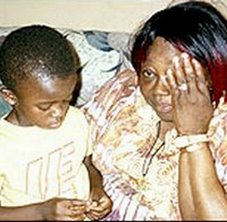

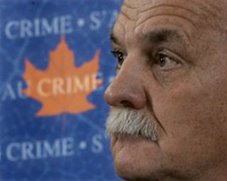
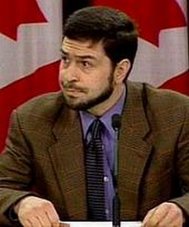
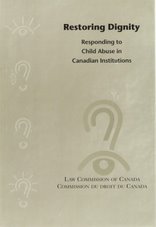
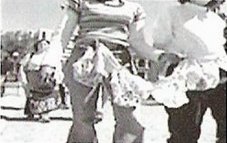

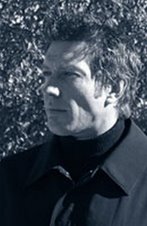
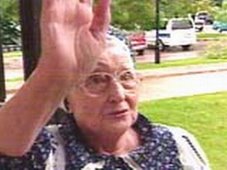
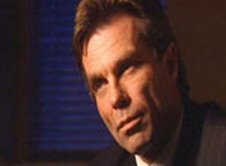
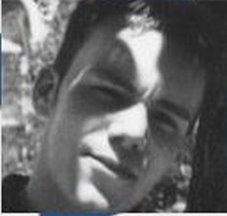
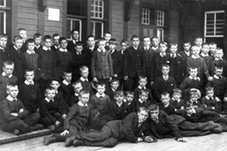
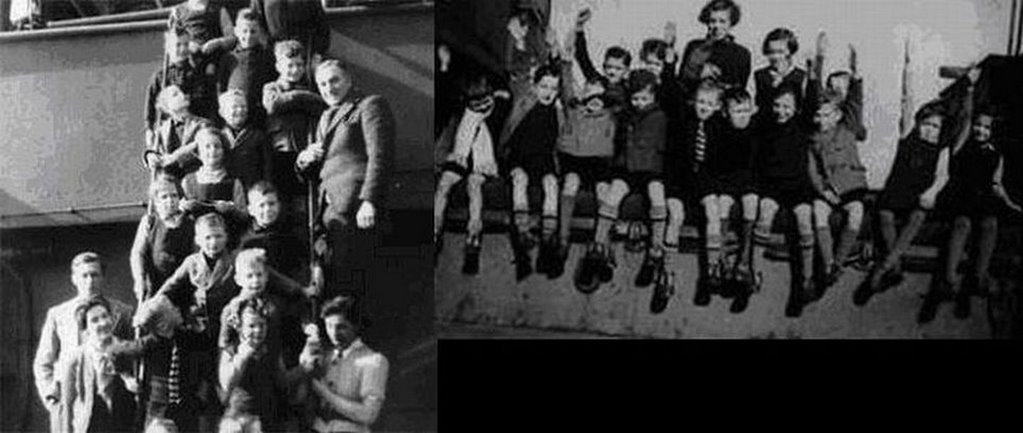
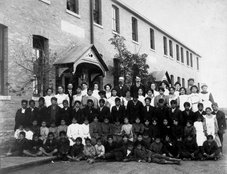
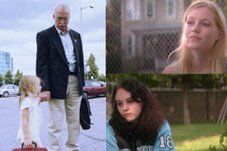


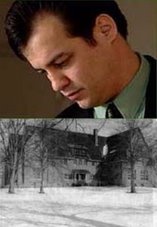
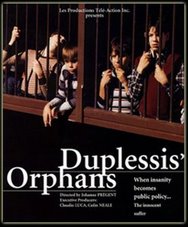


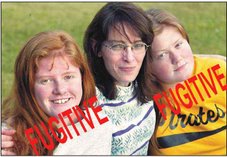
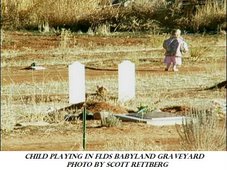
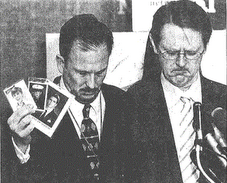

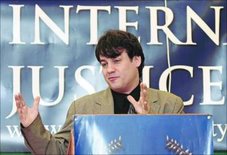
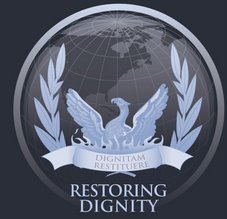

No comments:
Post a Comment